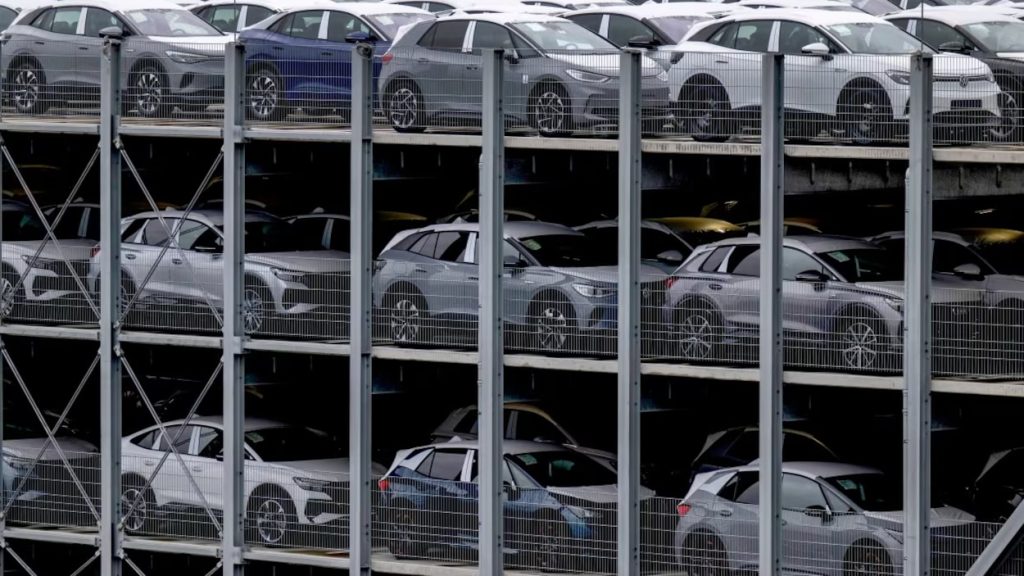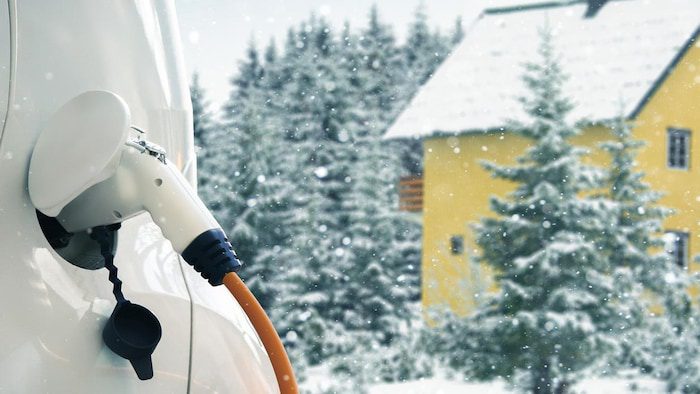
Hydro-Québec has been forced to review its projections for electricity consumption in Quebec, due to the popularity of electric vehicles, but also because of the Legault government's new ambitions to electrify the automobile fleet.
A document filed with the Régie de l'énergie shows that the state-owned company must revise its 2023-2032 plan to accommodate the expected growth in the number of electric cars.
According to Hydro-Québec calculations, by 2032, it will be necessary to add 1.2 terawatt hours (TWh) to the total energy demand already estimated, just because of the needs of these types of vehicles. To give an order of magnitude, 1.2 TWh is equivalent to the electricity consumption of 70,000 Quebec households.
The state-owned company wrote to the Régie on January 19 that the “strengthening of the zero-emission vehicle (ZEV) standard” had forced it to review its calculations. The Quebec government announced last year that its plan for a green economy now aims to have 2 million electric vehicles on the roads by 2030, up from 1.6 million.

250,000 electric cars are registered in Quebec.
Photo: Getty Images/StockPhoto / SharfSin86
Hydro-Québec underestimated demand
On November 30, in a parliamentary committee, Hydro-Québec's senior management admitted they had not seen such a request coming.
Look at the number of electric vehicles on our roads today compared to two years ago. There is considerable electrification. There is a significant demand for electricity, which is higher than expected.
The announcement came as a surprise to the University of Montreal's Normand Mousseau, scientific director of the Trottier Energy Institute, who oversaw an assessment study on the needs of an all-electric Quebec automobile fleet.
The number of electric vehicles in 2023 is not seen in 2021. It does not hold water
According to him. The trend is clear, we have seen exponential growth. No wonder we are where we are today.
More than 250,000 electric vehicles are registered in Quebec.
Normand Mousseau expressed doubt that the government's target of two million vehicles by 2030 would be met due to problems with car delivery times.
I have a brother who ordered an electric vehicle and was told it would take two years to get it. So, this is not part of the 300,000 vehicles that need to be added this year to reach our target.
The federal government has announced a goal of 100% of all new vehicles sold by 2035 to be electric vehicles.
If we ever reach our goals, will we be able to load all these cars?
In 2035, electric vehicles will consume a third of Hydro-Québec's excess energy
The state-owned firm recently announced a massive project to add up to 9,000 megawatts (MW) of power to its network. Energy is the ability to simultaneously supply all those who demand electricity.
A third of this extra energy will be used only to charge the province's electric vehicles. A table submitted by Hydro-Québec to the Régie de l'énergie shows a need of 2922 MW in 2035.
Hydro-Québec analyzes show that owners of electric vehicles charge them most often between 6pm and 8pm.
According to Professor Normand Mousseau, maintaining the winter peak requires putting in place “regulations to control recharge”.
Last year, Hydro-Québec underestimated power demand during a severe cold snap in early February. All Quebecers' record consumption of more than 43,000 megawatts significantly exceeded expectations.
In 2050, according to the state-owned firm, electric vehicles alone could consume a maximum of 6,000 megawatts.
Teleworking helps Hydro-Québec during peak periods
Hydro-Québec wrote to Régie Having A new electric vehicle has received charging data
It takes into account the new reality of teleworking. Therefore, erratic charging hours can reduce the expected impact at peak levels of 73 MW.
In addition, an offer that is currently under development and favors movement of charging at night is also taken into account in the forecast.
A state agency writes.
On such a distant horizon, Hydro-Québec also speculates Technological developments will greatly change the picture of the vehicle fleet, especially battery technologies that will see their weight decrease and their efficiency increase. This affects the frequency of charging needs
.
Finally, fortune tellers believe Electric vehicles can become tools for managing peak consumption
With bi-directional energy technologies that enable the electric car to act as a battery to power the home during peak winter usage.





More Stories
Sportswear: Lolle acquires Louis Garneau Sports
REM is still innovative enough to foot the bill
A trip to the restaurant with no regrets for these customers